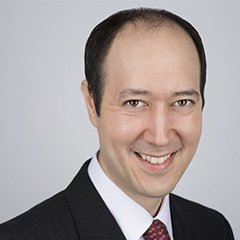An accusation of cheating can be so traumatic for students that it can drive them to suicide. To minimise the risk of harm, universities must deal with allegations of academic misconduct in a fair and humane manner.
John (not his real name) was a final year undergraduate student. A few weeks after an online assessment, he received a letter alleging academic misconduct. There were no details of the allegation and no supporting evidence. The letter stated that a date would be set for a hearing.
John was distraught. He thought he would lose his degree and perhaps even face expulsion. He feared for his future and dreaded his parents’ reaction. Shortly after receiving the letter, suffering from severe stress, John took an overdose of painkillers. He was admitted to hospital and survived.
For 3 weeks John received no news. Then, on a Friday, he received another letter. For the first time, the university specified that the allegation was ‘collusion’ and disclosed the evidence against him. A hearing was set for Monday. The letter stated that he could provide a written statement “at least one full working day” in advance of the meeting.
When John contacted me – a barrister specialising in academic misconduct – on the day he received the letter, he was in a state of panic and in floods of tears. He had no idea what to do.
A widespread problem
Cheating is rife in universities, worsened by the ease with which answers can be shared between students during online exams via applications such as Snapchat and Facebook messenger. A recent German study of 1,608 students in higher education found that 61% had used “unallowed assistance and/or engaged in direct exchange with other students” during online assessments last summer. To maintain the integrity of degrees and in fairness to those who do not cheat, universities must identify and investigate cases of possible cheating and, where appropriate, punish the guilty.
This must be done fairly and respectfully. It is not acceptable to tell students they have been accused of ‘academic misconduct’ without specifying the exact nature of the wrongdoing. Academic misconduct is a vast category that ranges from self-plagiarism (i.e. copying from your own, previous work) to impersonation. John found out one working day before his hearing that he had been accused of collusion.
It is not acceptable to ambush the student by disclosing the evidence during or shortly before the hearing. This denies the student an opportunity to formulate a proper defence, increases stress levels, and heightens the risk of finding innocent students guilty. The university should have given John the evidence against him much earlier. The right to have enough time to prepare a defence is a cornerstone of natural justice.
Nor is it acceptable to let weeks pass between the allegation of wrongdoing and the hearing. Students undergo high levels of anxiety between receiving the letter and the hearing. On my desk now is a letter from a university informing a student of an allegation of “exceptionally serious academic misconduct”. Reading it, one would be forgiven for thinking he had viciously bludgeoned some old-age pensioners. Many students going through the process tell me they are made to feel like criminals. As long as sufficient time is allowed for preparation, the shorter the period between the notification of the allegation and the hearing (and the outcome) the better. One may also question the need for describing an act of academic misconduct as “exceptionally serious” rather than just “serious”.
Respect
In the hearing itself, panel members should ask difficult questions respectfully. I attended one hearing where a panel member, upon hearing the student’s answer to a question, laughed out loud and said “well, that’s a new concept in Finance!”. The student felt humiliated. When I pointed out that such a reaction was discourteous, unhelpful and probably off-putting, the panellist – an academic – got upset and argued that the student had barely answered any questions correctly. That, of course, was irrelevant. Accused students should be treated with courtesy, irrespective of how well or poorly they perform in the hearing. Better selection and training of panellists is needed. Video recording the hearings and allowing accused students to be legally represented would no doubt improve the behaviour of panel members.
A university’s accusation of cheating will inevitably be stressful but, at present, many students are treated so poorly by their universities that their mental health suffers unnecessarily. In some cases, the absence of due process will lead to the ‘conviction’ of innocent students, with potentially disastrous effects on their degrees, career prospects, and earnings. Worse still, some students – whether guilty or innocent – may take their own lives. To reduce this risk, universities must look urgently at their practices and seek ways to improve them. This should be done by persons well versed in the principles of natural justice and in consultation with students and mental health professionals.
Daniel Sokol, PhD, is a former university lecturer, barrister and founder of Alpha Academic Appeals (www.academicappeals.co.uk)




















Great Article!